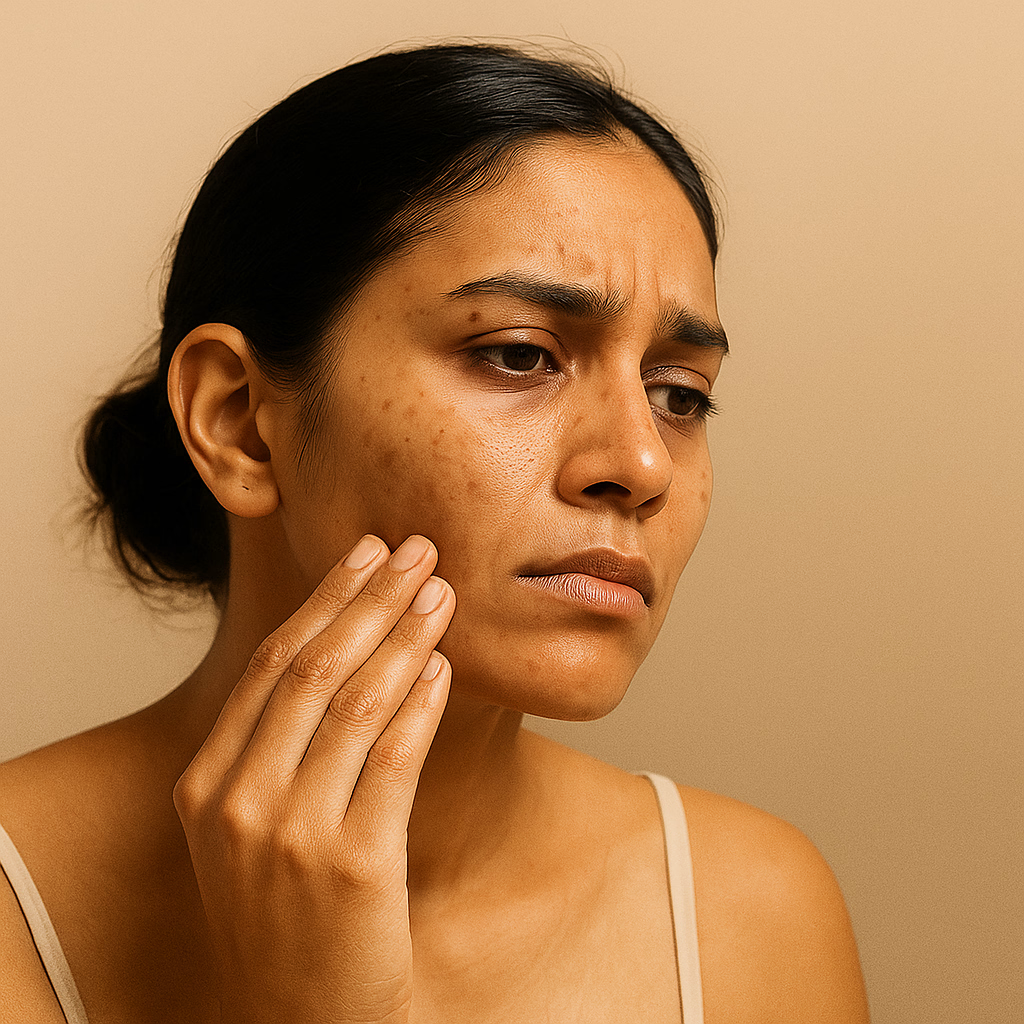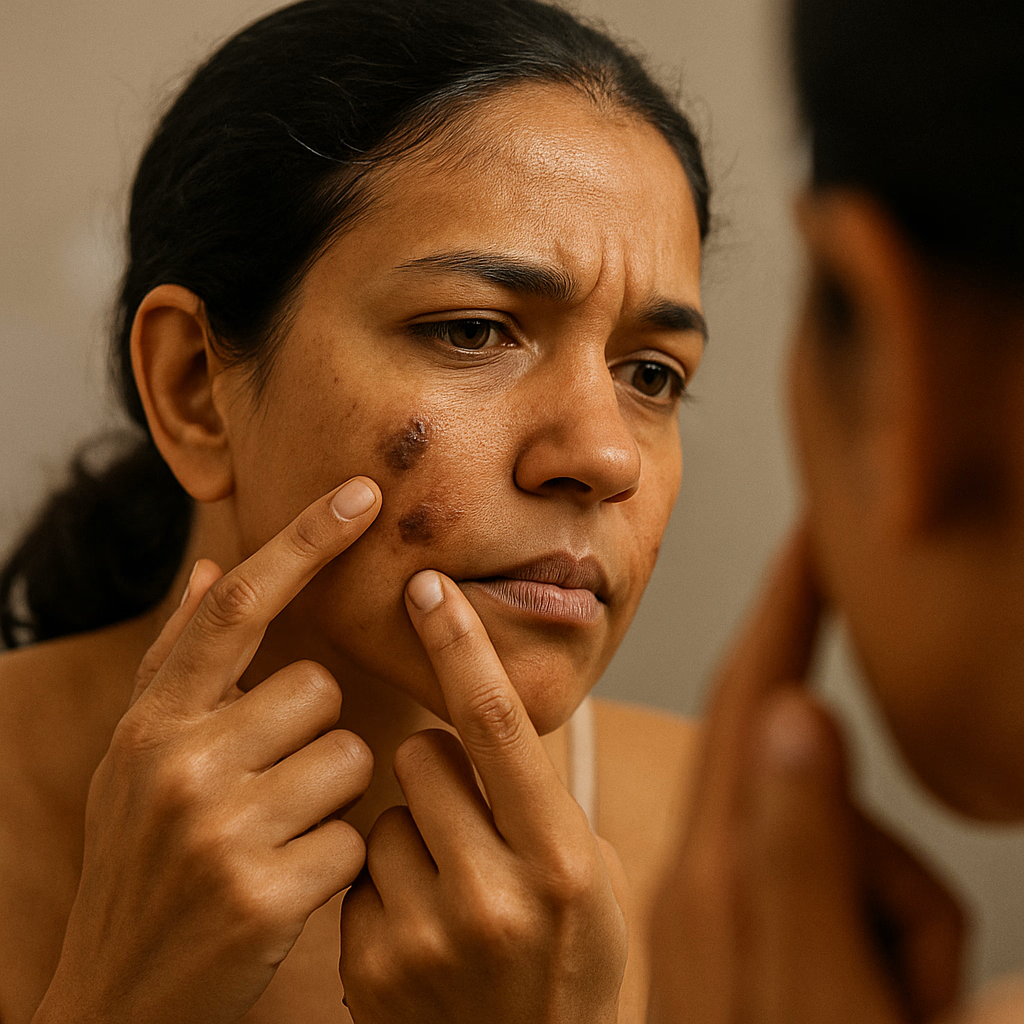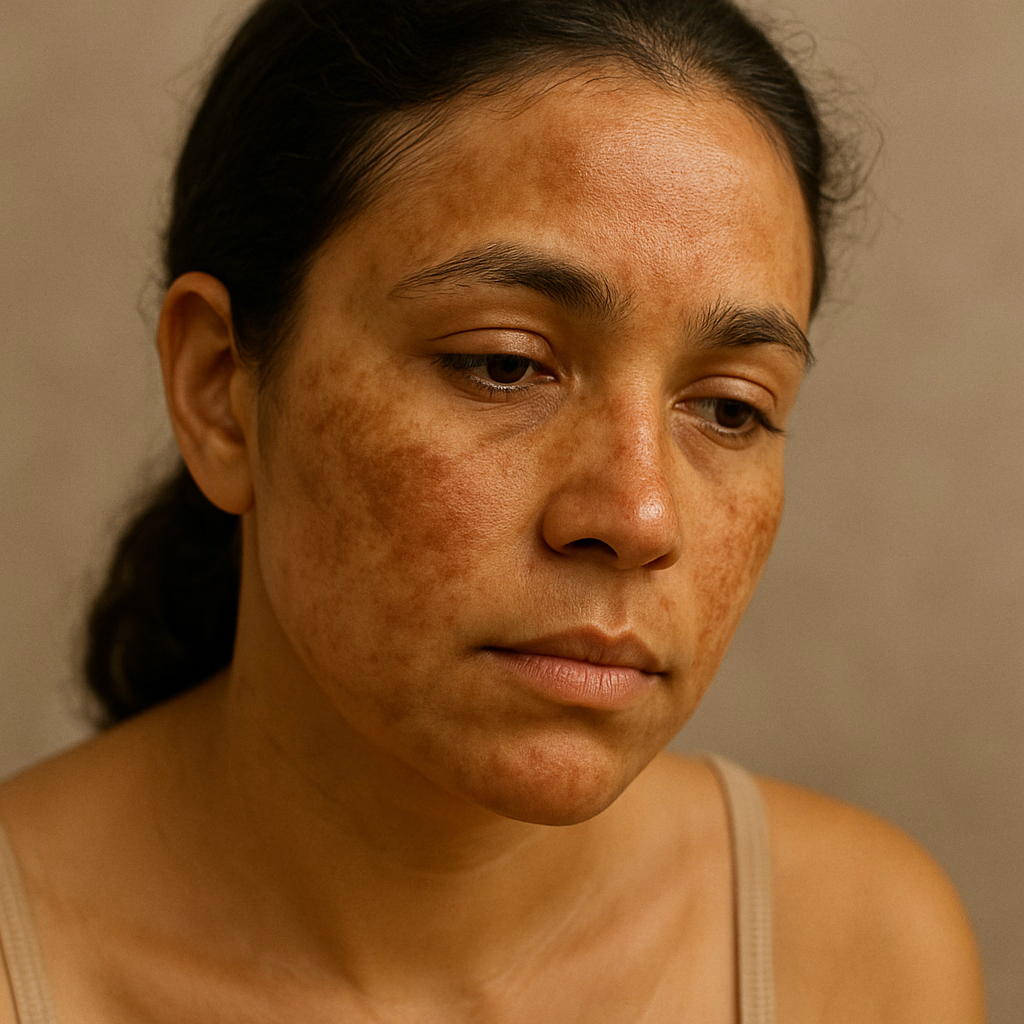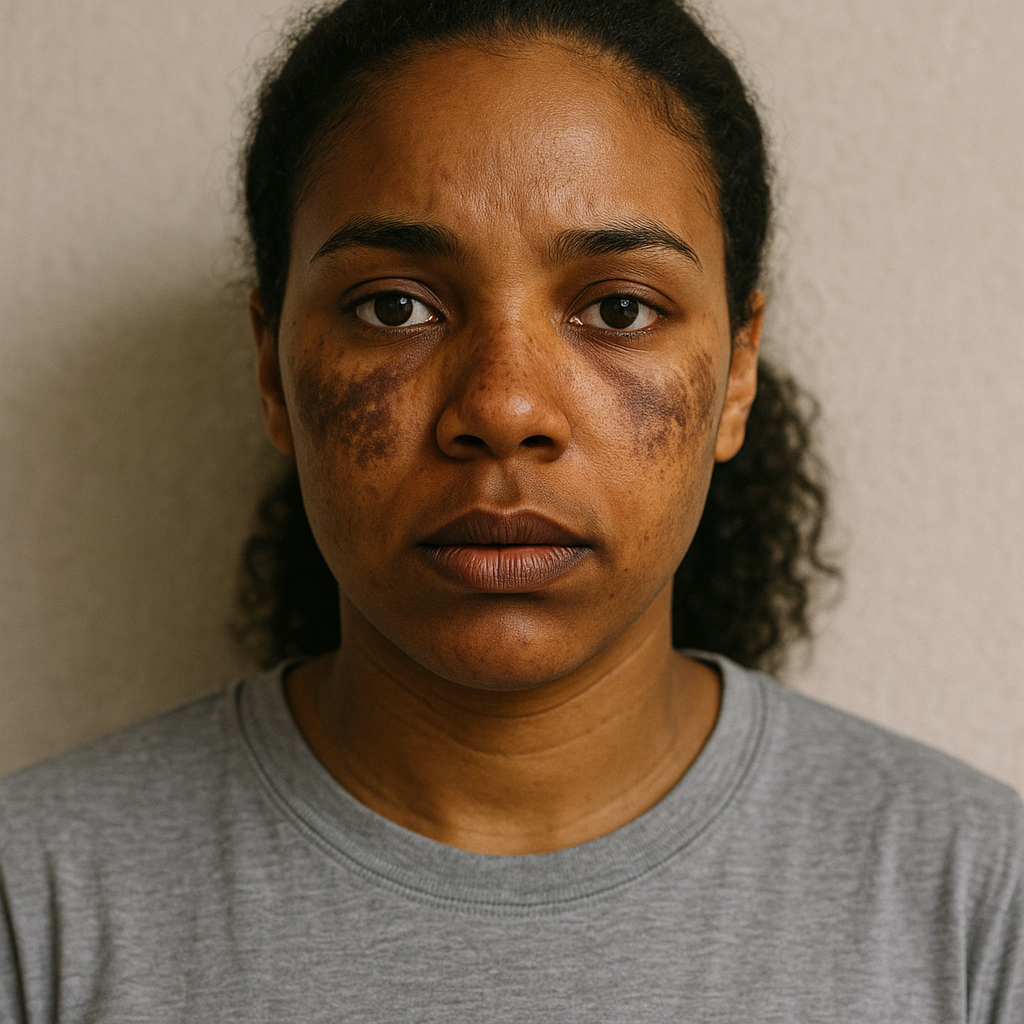Why is my skin getting darker?’ Does this question bother you whenever you look in the mirror? It’s not at all bad wanting to have a bright skin complexion.
We all put our best foot forward to achieve glowing skin. But have you ever wondered why your skin appears to be darker in some areas despite you putting in so much effort?
Dark spots and blotchy skin are common concerns faced by many. While factors like sun exposure, hormonal changes, and certain medical conditions may be beyond our control, a consistent skincare routine can make a significant difference. Let’s explore what causes skin discoloration and how you can effectively manage it.
6 Possible Causes of Skin Getting Darker
Also known as hyperpigmentation, skin darkening is a common woe that requires you to be specific about what products you apply to your skin.
Several factors can contribute to dark and dull skin. Understanding them will help you plan accordingly.
Although hyperpigmentation is not a medical condition, it may affect your skin aesthetics too deeply.
Being a skincare trouble for many, let’s look at some other prominent causes of skin darkening in detail:
1. Harsh Chemicals in the Skincare
The products you use on your skin can also be the reason for your skin getting darker.
Your facial skin is sensitive compared to the skin on the rest of the body.
So any regular skin care products you apply can manifest as dry patches, age spots, blemishes, and hyperpigmentation.
In addition, some cosmetic products formulated with toxins can trigger acne and scars, making your skin appear discolored and darker.

2. Exposure to the Sun
Melanin is a pigment responsible for the dark color of the skin and it gets triggered by prolonged and excessive exposure to the sun.
This is why one may experience one’s skin getting darker and duller in the affected areas.
So, if you mostly stay outdoors without any protection, your facial skin may start getting darker than the rest of the body lotion.

3. Past Skin Damage
Post-inflammatory hyperpigmentation is when your skin produces too much melanin after it has been injured or irritated.
It means darker skin in areas where you once had an allergic reaction, injury, acne, scars, and other types of inflammation.
So, the first line of treatment is to address the underlying skin inflammation. When the condition reduces, your skin lightens on its own.
This would help reduce darker skin tone by a few shades at the least.

- Melasma
Melasma is a skin disorder that is most likely caused due to hormonal imbalance and the onset of pregnancy. Hyperpigmented patches can appear anywhere on the body, especially on the face, forehead, cheeks, nose, chin, and stomach. As a result, the skin becomes dull and uneven.

- Pregnancy
Hormonal changes during pregnancy can make skin cells produce more melanin.
So if you are wondering why my facial skin is getting darker, it’s likely your pregnancy hormones.
Your skin tone may also darken in small patches scattered throughout the body. However, these changes will gradually fade post-delivery.
So if you expose your skin to the sun for longer durations while pregnant, you may risk skin tanning.

6. Addison’s disease
It is a medical condition in which the adrenal glands do not produce enough hormones, causing the skin to appear dark on areas like cheeks and lips. Consult your doctor if you have been observing dark patches on your skin without any reason. He may prescribe you medicines to stimulate hormones lacking in the body care.

Step Skincare Routine for Treating Darker Skin Tone
Step 1: Choose the Right Face Wash
Cleansing is the first step in any skincare routine. It helps you eliminate unwanted oil, dirt, dust, and grime. In addition, we recommend you choose a mild, sulfate-free face wash to avoid any allergic reactions on the skin.
RAAGA NORMAL TO DRY SKIN MOISTURIZING FACE WASH (80 ml) is best suited if you want your skin to look youthful, fresh, smooth, and brighter. It helps control melanin production by inhibiting the activity of the tyrosinase enzyme.
https://ashtamudi.org/product/raaga-normal-to-dry-skin-moisturizing-face-wash-80-ml/

Step 2: Gentle Exfoliation by Face Scrub
Exfoliation is the skin’s mechanism to shed dead skin cells when they mature. However, as we age, the skin’s healing process, called desquamation, slows down, resulting in dull and darker skin. Skin care experts recommend weekly exfoliation to slough off dead cells to boost skin cell turnover.
We recommend choosing SEASOUL FOAMING BODY SCRUB to reduce hyperpigmentation and sun tan to unveil a brighter skin tone.
Step 3: Brightening Serum
Face serum is a safe and effective skincare product for several causes. It helps to lighten skin, reduce signs of aging, treat acne and scars, and boost hydration. If your concern is darker skin, you can go for vitamin C serums that work to give your skin the look and feel of youth.
You may add Cosderma Brightening Serum to your night care regimen to boost skin cell turnover. It would work seamlessly with your other skincare products and help you get better regular usage results.

Summing up
Your skin may turn out dark owing to a couple of reasons. Hyperpigmentation can take a little longer to go away but trust that it can be treated. A proper skincare routine can set things right for you. Stick to your PM routine, for your skin goes into repair mode at night. You can use vitamin C skincare range to boost skin cell turnover and affect the melanin in the skin.
As there are no harsh chemicals or toxins in our formulations, this will help improve skin texture and treat hyperpigmentation more effectively. We also suggest that you see your dermatologist if your skin appears darker for no reason. Besides, don’t forget to take your daily dose of hydration, exercise well, and eat lots of fresh fruits and vegetables.




